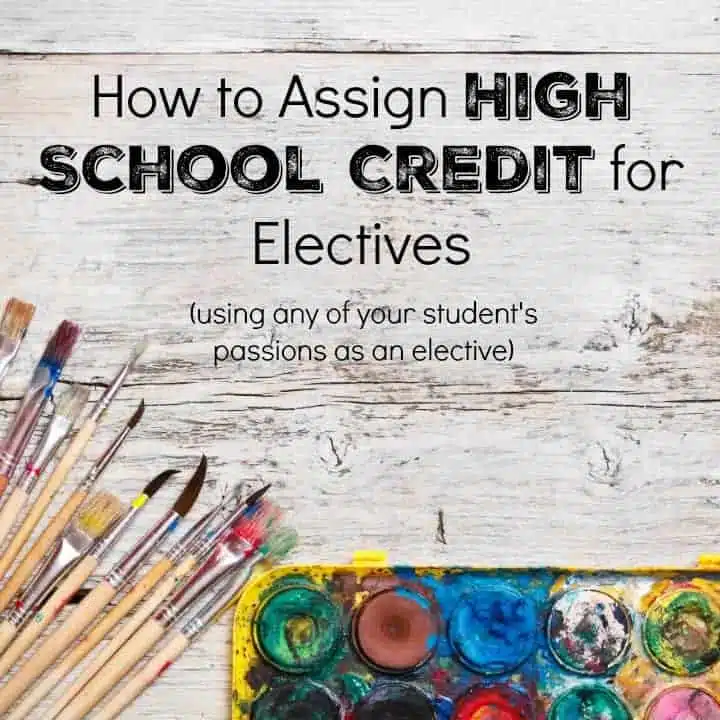Life After High School: Alternatives to College
You graduate. You go to college. The end. At least, as far as the general population seems to be concerned. No one considers the fact that college may not be for everyone.
Guess what. College may not be for everyone.

You know what else? It doesn’t mean you – or your child – are an uneducated failure if you choose a path other than college. It may just mean that college isn’t the best way to reach your career goals. If your child wants to be a doctor or a lawyer, clearly she needs to plan on attending college.
However, for many occupations, a college education – and the accompanying expense – may not be necessary.
Is College Necessary?
Before sending off all those college applications, play the role of high school guidance counselor and determine if college is the next logical step for your student.
Talk to your teen about his career aspirations. If he has no idea what he’d like to do after graduation, discuss his skills, interests, and strengths. Consider having your teen take a personality or career aptitude assessment and see if the results spark an interest.
Probably the single best way to determine the best next step for your teen’s chosen career path is to talk to people who are in that field. Ask them:
- What skills and qualifications are needed
- How they acquired those skills
- What they wish they’d done differently
- Did they earn a college degree – If so, has it been helpful? If not, do they wish they had?
- What type of education, experience, or degree they would recommend
- Where they would recommend acquiring the skills or degree needed (Note: The most expensive school or the one with all the bells and whistles isn’t always the best choice.)
If you and your teen decide that college is the best route for his or her situation, be aware that there are college scholarships for homeschoolers. In most cases, homeschooled students are eligible for the same scholarships as their traditionally-schooled peers, but there are scholarships specifically for homeschoolers.
Four College Alternatives
Trade School
My oldest attended a private cosmetology school that taught only cosmetology. She didn’t want or need to take all the other required classes a college – even a vocational college – usually require.
Trade, technical, or vocational schools may be public or private. Their programs are usually two years or less and provide classroom and hands-on experience in their degree field. Students may earn an associate’s degree, diploma, or certificate. Or, they may apply to be licensed or go directly into the field as an apprentice or journeyman after completing the program.
Trades may include jobs such as plumbers, electricians, carpenters, or cement masons. Wikipedia has a great list of work a tradesman might do and the site Explore the Trades offers some insight into how to acquire the skills needed to do some of them.
Skilled trade workers are not second-class citizens. They are not people who weren’t smart enough to go to college to get a “real” job. Skilled tradesmen are a vital part of our economy.
Apprenticeship
Apprenticeship is something we don’t hear much about anymore. However, many people still learn their trade in a hands-on environment under the instruction of a master of that trade.
When my husband was in his late teens and early twenties, he worked alongside an appliance repairman. That is not what he wound up doing for a living, but I can’t tell you how much money we’ve saved because he can repair most of our appliances himself.
There are still people out there who work as farriers, sheep shearers, cheese makers, and blacksmiths.
Those jobs may seem antiquated, but in the right market, they are still in demand. And, they don’t require a college degree.
I mean, I’m sure some colleges may offer degrees in some more obscure professions but are you really going to ask your sheep shearer to see her degree or are you going to look at her experience and the quality of her work? (Yes, I know someone who finds herself in need of a sheep shearer a couple of times a year.)
Experience and Networking
Some skills are acquired through work and life experience. In some cases, this is much like an apprenticeship. Other times, it’s more a matter of putting yourself in the right situations and networking.
When I was college age, I went to a local technical school, studying to be a sign language interpreter. I never did get my degree, which also required all those core college classes. (Why did I get cocky and think that the challenge of advanced chemistry was a smart idea for a sign language interpreter? Why?)

I probably would have been better off spending time with a friend’s deaf sister who enjoyed the fact that I knew enough sign language to communicate with her. She would have been happy to help me practice and gain fluency. And, my aunt had a contact with a local school for the deaf who wanted me to contact her once I had mastered a certain number of signs.
You know that expression it’s not what you know, but who you know? There is still a great deal of truth to that and often the who you know can move the what you know in the right direction.
The Workforce or Entrepreneurial Opportunities
Finally, some teens will graduate and go directly into the workforce. There are internships and on-the-job training with opportunities for advancement.
Other students may have aspirations of running their own business. While a college degree in business management will likely be helpful, young adults with the right acumen may be ready to jump in and start their own venture or invent something amazing.
Don’t misunderstand. I’m not encouraging kids to arbitrarily blow off college. It will likely play a vital role in the future of many teens, and a degree is sometimes crucial for moving up within a company, even when it has little to do with a person’s actual job responsibilities. It’s not uncommon for a person with a college degree to be chosen over someone without a degree who is equally qualified based on work experience.
However, college is not necessarily the right choice for every high school graduate. It’s worth exploring the options with your student to see if a different route might result in acquiring the same skills quicker and more economically.
Do you have children who have graduated and successfully followed a path other than college?
You Might Also Like
Kris Bales is a newly-retired homeschool mom and the quirky, Christ-following, painfully honest founder (and former owner) of Weird, Unsocialized Homeschoolers. She has a pretty serious addiction to sweet tea and Words with Friends. Kris and her husband of over 30 years are parents to three amazing homeschool grads. They share their home with three dogs, two cats, a ball python, a bearded dragon, and seven birds.






My oldest son attended public school. He didn’t really know what he wanted to do upon graduating so he took an interest in becoming an EMT. He completed the 1 year training program (which lucky for us was free with the public school at that time). Although, after working and volunteering in the field he decided to go to college, the skills he gained he is using today for his part-time job at the hospital he works at until he finishes college. We had even considered other options such as the : Americorps, Femacorps or Peacecorps. Also, a year doing volunteer work that included free room and board with helpx.net which is a help exchange for organic farms abroad . There are lots for young people to do in discovering what they want to be. Who says there has to be a formula for it.
That’s great, Nita. We’re also thinking that, at some point, Brianna may decide to go to college, as well. If so, she’ll have a marketable skill in cosmetology to help her work her way through. I think for many young adults it’s a good idea to spend some time working and volunteering to help them figure out what it is they truly want to pursue in life. That often gives them the direction and determination to pursue their goals more seriously than they would if they went to college straight out of high school and spent the first few years trying to decide what it is they really want to do.
Thanks, Kris, for this post. I think this needs to talked about so much more than it is. There’s so much pressure on kids to go to college instead of pursuing something that they might have a passion for but doesn’t require a college degree.
Thank you so much for this timely post! When my son woke up this morning, he started talking about options for his future.
Thanks for the article! I went to cosmetology school over 27 years ago when I was in the work force I worked retail and went into management because I had a degree I got paid $10,000 more than someone that didn’t have a degree… Never mind it was in a field that had nothing to do with my job… College isn’t for everyone like a lot of people think..
Yes, that is something to consider. Often people with a degree do get paid more, even when the degree is unrelated.
Another great resource for trade schools and help is former Dirty Jobs host Mike Rowe’s site, mikeroweworks.com . He helps people find training and helps employers find people to hire in the taxes that run or country. He also has scholarships for kids to go to vocational schools!
In the trades, not taxes. My phone doesn’t read my swiping very well! 🙂
My husband is a electrician and went to a trade school. He works with a firm that does electric work on commercial buildings. I never went to college. I grew up in a poor neighborhood where it was not an option. I did clerical work for a large firm and ended up getting transferred and meeting my husband when a fuse blew. I then saw him in church and soon after that we started dating. Anyway my 12 year old wants to be a vet tech which is a two year degree and my 9 year old wants to be in the military.
Caitlyn, I like your comment, it reminds me that there are other options besides college after high school. Many of my friends haven\’t gone to college, and they have very steady, reliable jobs. Sometimes I wonder what it would have been like for me, if I hadn\’t gone to college. Just another path, another adventure in a different land.
‘Do you think trade workers are the kids who were too unintelligent to go to school to get a “real” job? Why don’t you try wiring your home’s electricity yourself. When is the last time you called a plumber and how much did you pay him?’
Had to laugh – two of my sons are in the plumbing & electrical trades. They chose the trades over a college education because it was what interested them & not because they didn’t have the academic ability to succeed in tertiary studies.
College isn’t the best option for everyone after high school, so I appreciate you sharing alternatives to a formal degree. I’ve been debating whether or not vocational or trade schools would be a good option for me, and after this post, I think they would be. As you said, a trade school would teach only that trade, which is very appealing to me. Thank you for offering and explaining the different alternatives for those after high school who aren’t keen on college.
Kris, I had never really given any thoughts to my plan after high school. The more I think about it though, the more unsure I am about going to college. A trade school might be cool. I have always been interested in cosmetology. I will have to look into that a little more!
As I am getting ready to graduate high school, I have been thinking about what I want to do for a career. Seeing as school has never been my strong suit, I have been thinking about going to a trade school. That being said, I really like the suggestion you give about cosmetology school. As you say, this gives you the experience and license to do hair. Plus, it gives general training and skill that can go on a resume and help me get a job. Thank you for your insight!
Thanks so much for this article! We have heard far too many people tell our 2 recently graduated homeschoolers that they won’t succeed at anything in life if they don’t have a college degree. I always have to bite my tongue not to thank them for calling me a failure. My son has been gainfully employed for 2+ years, making a good living, and daughter is following his footsteps. They can always continue their education once they have a better idea what they may wish to study – and have saved money to do so.
Exactly. I have a friend whose twin boys have been gainfully employed for 3 years or so since graduation. Their younger brother, also graduated, worked for about a year or so and decided that if he was going to have to work that hard every day to earn a living, he might as well go to school and learn to do something he’ll enjoy. He has started the enrollment process for next semester. As most parents will agree, no amount of talking from a parent would have convinced him of that truth like experiencing the workforce and deciding on his own. Now he’s invested in his secondary education and my guess is he’ll take it much more seriously.
Thank you for sharing you this article! Yes it makes worry. My son is autistic and academically will not meet the requirement to attend a college. However there are other areas in which I could see hold a job. My daughter I can see possibly owning her own business as she is a hands on and takes charge. It is encouraging to read this article. Not all homeschoolers are meant for college. Just like not all autistic children are genuises.
My husband does not have a college degree and makes more than most of his friends who graduated college with degrees (one in engineering). He was always interested in computers and got a few certifications (self study and took the tests) that are relevant in the tech field and got a job with a good tech company. His field is one that does not have enough qualified people in it and even without a college degree, he gets tons of job offers a week from companies all over the world. He turns them down because he already makes more than they offer. We do an online public charter school with our kids and let them know college isn’t the only choice. I know too many people with college degrees that can’t find jobs.
May I ask what certifications he got- where or what through?
He self studied and got his Network +, Security + and A+ certifications. All that is required for these is to buy the books, study and pay to test. He is also Apple Care certified, but he doesn’t really use that one much.
Hi Kris!
Such a great article and thank you for sharing. There is such a pressure for going to college these days. We are going to talk with a plumber tomorrow to learn my son’s options for trade school/apprenticeship programs. Thank you for the links they were helpful as we prepared for the interview. If you have tips on designing a vocational high school program (or know where to send me on the internet) I’d be very grateful!